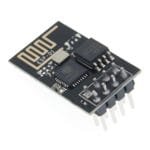
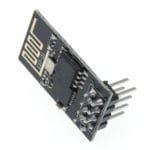
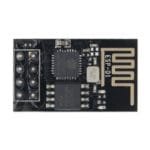
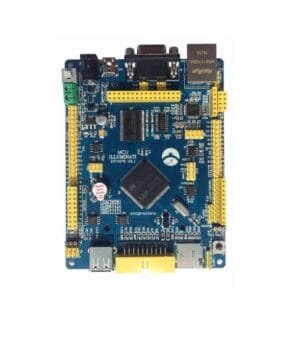

ESP-01 ESP8266 serial WIFI wireless module (Upgraded version) Wireless Transceiver ESP8266-01
₨1,050.00 Original price was: ₨1,050.00.₨980.00Current price is: ₨980.00.
Introduction:
- High quality & low price
- LWIP agreement
- Support 3 modes: AP, STA, AP+STA
- Perfect and simple AT commands
Now Arduino can get on WiFI without breaking the bank.
Use this module for your next Internet of Things (IoT) project, home automation, Or remote sensor project.
This module adopts the ESP8226 IC for use over a serial connection using simple AT commands.
No SPI interface or Know-How is required.
Description:
Features:
- 32-pin QFN package
- Integrated RF switch, balun, 24dBm PA, DCXO, and PMU
- Integrated RISC processor, on-chip memory and external memory interfaces
- Integrated /baseband processors
- Quality of Service management
- I2S interface for high fidelity audio applications
- On-chip low-dropout linear regulators for all internal supplies
- Proprietary spurious-free clock generation architecture
- Integrated WEP, TKIP, AES, and WAPI engines
Solutions:
- Supports APSD for optimal VoIP applications
- Patented spurious noise cancellation algorithm for integration in SOC applications
- Supports Bluetooth co-existence interface
- Self-calibrated RF to ensure optimal performance under all operating conditions
- Zero factory tuning
- No external RF components
Specifications:
- 802.11 b/g/n
- Wi-Fi Direct (P2P), soft-AP
- Integrated TCP/IP protocol stack
- Integrated TR switch, balun, LNA, power amplifier and matching network
- Integrated PLLs, regulators, DCXO and power management units
- +19.5dBm output power in 802.11b mode
- Power down leakage current of <10uA
- Integrated low power 32-bit CPU could be used as application processor
- SDIO 1.1/2.0, SPI, UART
- STBC, 1×1 MIMO, 2×1 MIMO
- A-MPDU & A-MSDU aggregation & 0.4ms guard interval
- Wake up and transmit packets in < 2ms
- Standby power consumption of < 1.0mW (DTIM3)
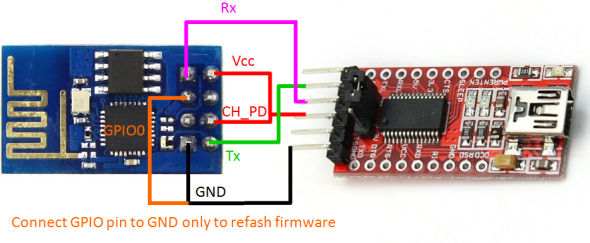
You must be logged in to post a review.
Related products
Arduino Nano V3.0 Pre-Soldered Pins with USB Cable
Overview:
- Microcontroller: Atmega328
- Operating Voltage: 5V
- Input Voltage (recommended): 7-12V
- Digital I/O Pins 14 (of which 6 provide PWM output)
- Analog Input Pins: 6
- DC Current per I/O Pin: 40 mA
- DC Current for 3.3V Pin: 50 mA
- Flash Memory:32 KB (ATmega328) of which 0.5 KB used by bootloader
- SRAM:2 KB (ATmega328)
- EEPROM:1 KB (ATmega328)
- Clock Speed:16 MHz
Atmega32u4 Esplora Joystick Game Programming Module
Overview:
Microcontroller: ATmega32u4 Operating Voltage: 5V Flash Memory: 32 KB of which 4 KB used by bootloader SRAM: 2.5 KB EEPROM: 1 KB Clock Speed: 16 MHz The board contains everything needed to support the microcontroller; simply connect it to a computer with a USB cable to get started. The Esplora has built-in USB communication; it can appear to a connected computer as a mouse or keyboard, in addition to a virtual (CDC) serial / COM port. This has other implications for the behavior of the board. Arduino DIY Experiment is mainly used for kids toys,science kits for 10 year old kids, steam kit on high school, primary school, secondary school, cool science experiments.Raspberry Pi Compute Module 3 – 4Gbytes eMMC Flash
Raspberry Pi Calculation Module 3
Raspberry Compute Module 3 is for designers who prefer Raspberry Pi3 functionality but require a smaller form factor (67.6 mm X 31 mm) for their embedded design. These modules are DDR2-SODIMM, mechanically compatible system-on-a-chip (SoM) that includes a BCM2837 processor system-on-a-chip (SoC) with 1 GB of LPDDR2 RAM and 4 GB of eMMC flash. In addition, these modules have an additional input/output (I/O) interface in addition to the Raspberry Pi Model A/B board.
Simcom- SIM900
U-BLOX NEO-6M module (GY-GPS6MV2)
- 1 — u-blox NEO-6M GY-GPS6MV2 GPS module with on board EEPROM
- 1 — GPS antenna
- 1 — 1x4 male header
WiFly RN-171
- Ultra low power for battery powered applications
- Firmware configurable transmit power: 0dBm to +12dBm
- Hardware interfaces: UART
- Supports Adhoc and infrastructure networking modes
- User programmable GPIO & ADCs
- Real-time clock for time-stamping, auto-sleep, and auto-wakeup modes
- Run directly from batteries or regulated power supplies
- Configuration over serial or wireless interface using simple ASCII commands
- Over the air firmware upgrade
- Secure Wi-Fi authentication schemes (WEP/WPA/WPA2)
- Full onboard TCP/IP stack (no external drivers required)
XBee 1mW Wire Antenna
Description:
- 3.3V @ 50mA
- 250kbps Max data rate
- 1mW output (+0dBm)
- 300ft (100m) range
- Wire antenna
- Fully FCC certified
- 6 10-bit ADC input pins
- 8 digital IO pins
- 128-bit encryption
- Local or over-air configuration
- AT or API command set




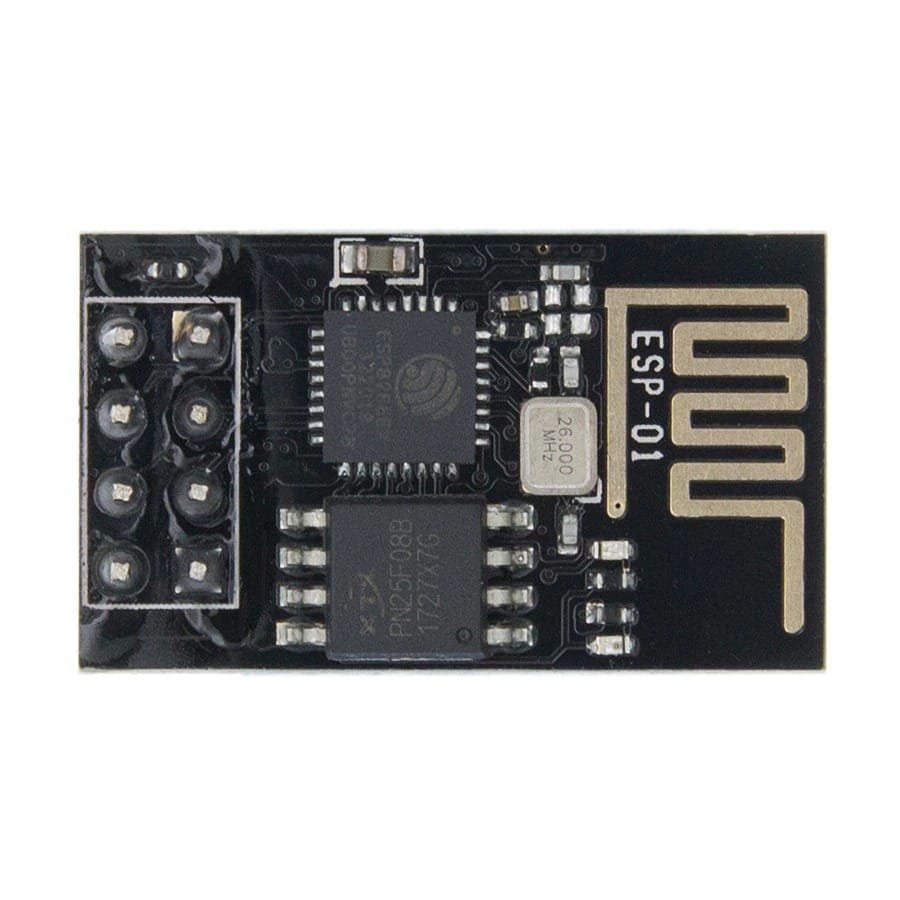







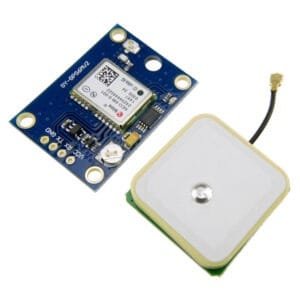




Reviews
There are no reviews yet.